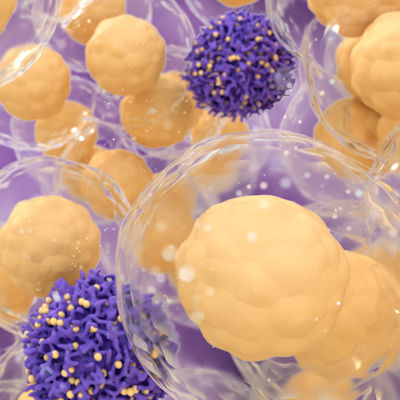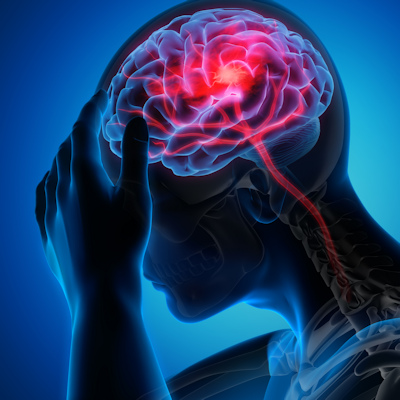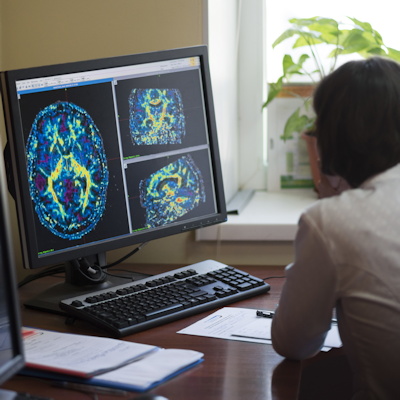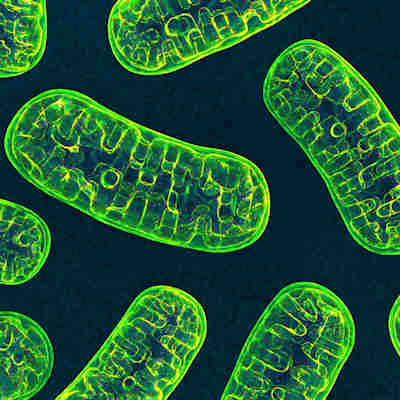 Mixed bag so far in 2022 for cell and gene therapy sector: ARM report
Mixed bag so far in 2022 for cell and gene therapy sector: ARM report
So far, 2022 has been a mixed bag for the cell and gene therapy sector on the regulatory and investment fronts, according to a new report from the Alliance for Regenerative Medicine (ARM). Read More
 Computational screening uncovers potential painkillers without addictive, sedation properties
Computational screening uncovers potential painkillers without addictive, sedation properties
University of California, San Francisco researchers have used computational screening of 301 million virtual molecules to uncover non-opioid compounds that treated pain without causing sedation in animals, offering lead candidates as an alternative to narcotics. Read More
 Tumor-promoting mutation linked to suppression of anticancer immune response
Tumor-promoting mutation linked to suppression of anticancer immune response
Mutations that support the growth of tumor cells may also inhibit T cells, preventing the immune system from responding effectively to emerging cancers, according to Harvard Medical School researchers. Read More
 Nanoparticles enhance effect of brain stimulation on stroke recovery in rats
Nanoparticles enhance effect of brain stimulation on stroke recovery in rats
Combining nasally administered nanoparticles and noninvasive brain stimulation improves the recovery of ischemic stroke in rats, according to researchers from Xi’an Jiaotong-Liverpool University and other universities in China. Read More
 Biotech licenses drug discovery platform from Harvard, Tufts to study complex CNS diseases
Biotech licenses drug discovery platform from Harvard, Tufts to study complex CNS diseases
Unravel Biosciences has licensed a drug discovery platform from Harvard University and Tufts University to decode and model complex central nervous system (CNS) diseases. Read More
 CRISPR edited rat embryos reveal cause of rare pediatric neurodegenerative disease
CRISPR edited rat embryos reveal cause of rare pediatric neurodegenerative disease
Using CRISPR gene editing technology on rat embryos, University of Wisconsin-Madison researchers have revealed the mutation that is responsible for progressive gait abnormalities and other symptoms in human infants and young children with a rare neurodegenerative disease. Read More
 New AI tool discovers mutations linking bladder cancer to tobacco smoking
New AI tool discovers mutations linking bladder cancer to tobacco smoking
Using a new artificial intelligence (AI) tool, University of California, San Diego researchers contend they have for the first time uncovered a pattern of DNA mutations that links bladder cancer to tobacco smoking. Read More
 NIH funds repurposing of breast cancer drug against glioblastoma
NIH funds repurposing of breast cancer drug against glioblastoma
The National Institutes of Health (NIH) is funding research into the repurposing of the breast cancer drug letrozole for use against the most deadly form of brain tumors. Read More
 MIT miniaturizes antenna for wireless operation inside living cells
MIT miniaturizes antenna for wireless operation inside living cells
Massachusetts Institute of Technology (MIT) researchers have created an antenna that can operate inside cells and is compatible with 3D biological systems, with the potential for applications in diagnostics and therapeutics. Read More
 Mutated mitochondrial microprotein linked to increased risk of Alzheimer’s
Mutated mitochondrial microprotein linked to increased risk of Alzheimer’s
University of Southern California researchers have linked a mitochondrial DNA variant to increased risk of Alzheimer’s disease, pointing to a new way to tackle the hard-to-treat condition. Read More
Member Rewards
Earn points for contributing to market research. Redeem your points for merchandise, travel, or even to help your favorite charity.
Research Topics
Interact with an engaged, global community of your peers who come together to discuss their work and opportunities.
Connect
Tweets by @ScienceBoard



